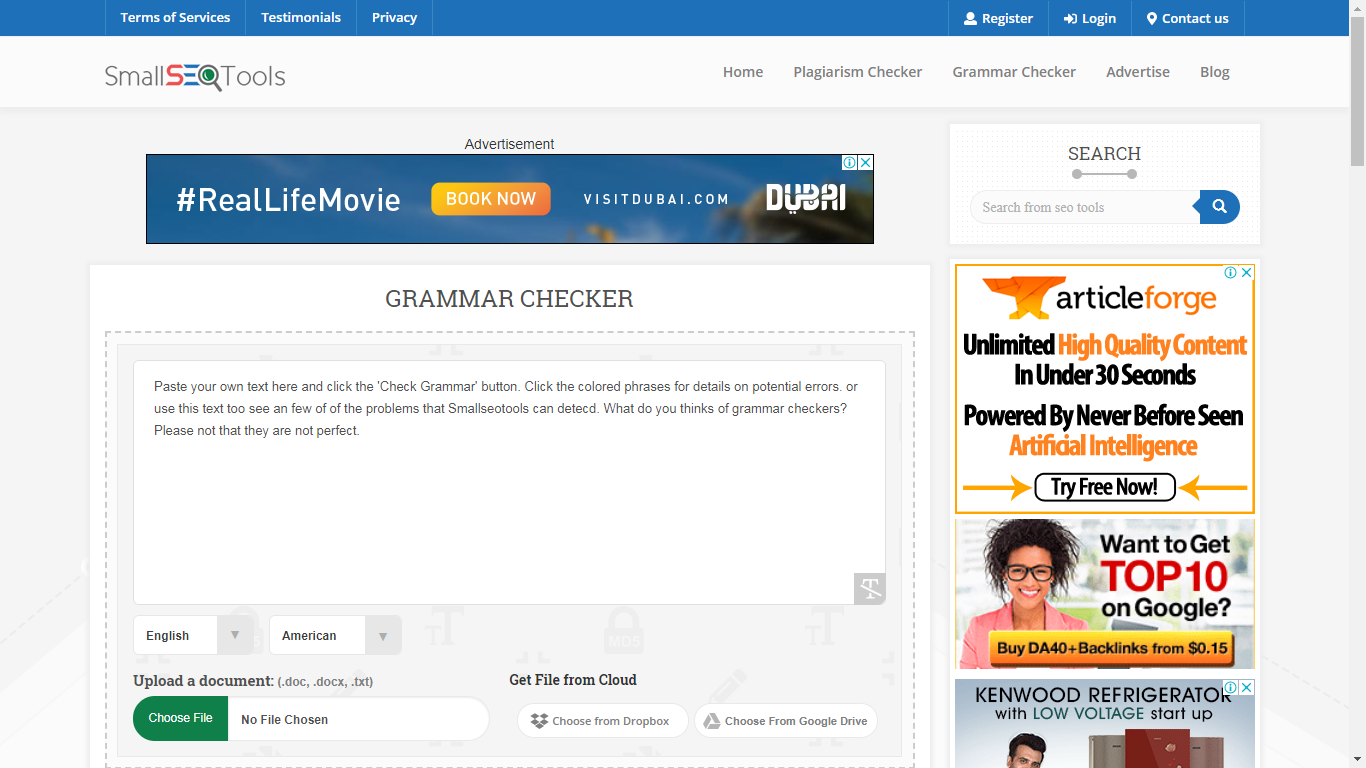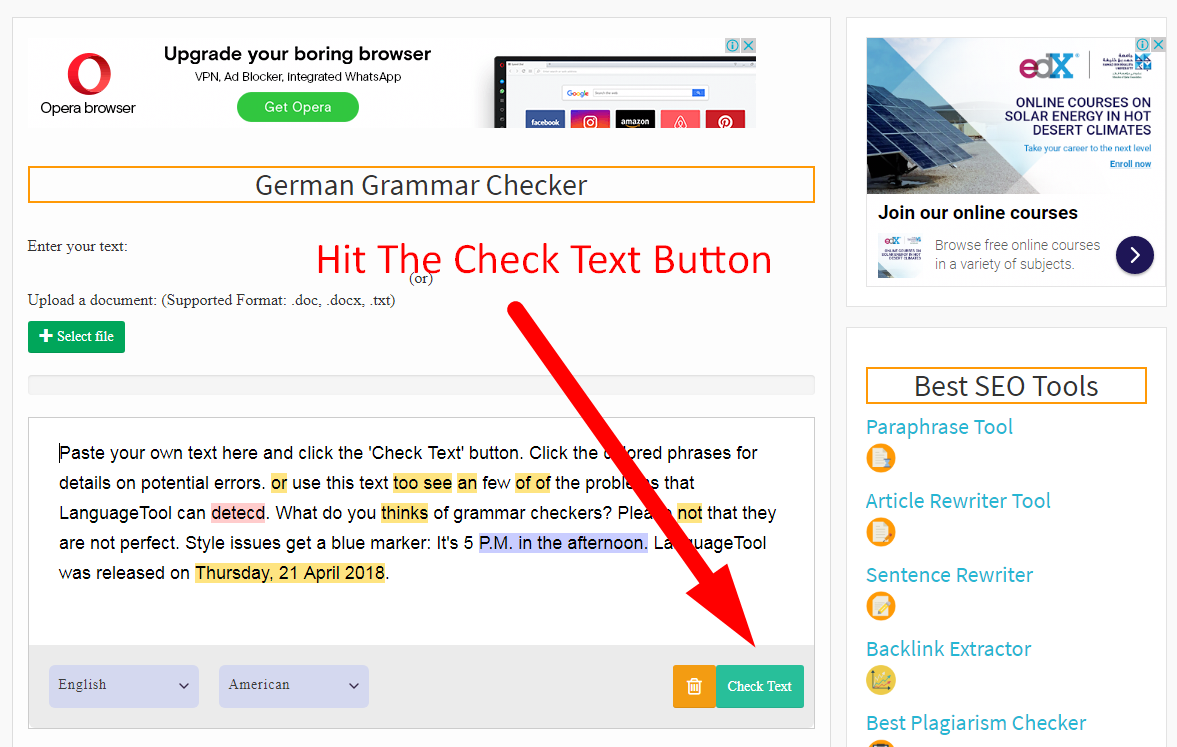

Below we present a list of those that specifically address grammar issues (please note that most German courses listed in other sections of this website are also dealing with grammar):
#Online german grammar check free#
There is no shortage of free online resources that teach German grammar. Free German Grammar Exercises and Reference Books Fortunately, these exceptions tend to follow set patterns but a certain amount of pure memorization is required. One such example is irregular verbs which are often the same in German and English (e.g., sing, bring, drink). German, like English, has grammatical irregularities or exceptions. Also, the prepositional part of compound separable verbs, e.g., “auf” in the German verb “aufstehen” (meaning stand up in English), comes at the end of the clause. The biggest difference is that in German the verb is always placed at the end of subordinate clauses. German word-order is not the same as English, although there are a lot of similarities.

This is important when conjugating verbs that follow these pronouns and there are precise grammatical rules for it. The English “you” has two forms in German – “du” and “Sie” in singular and “ihr” and “Sie” in plural. You will have to learn the plural form of most German nouns by heart. The plural form of many nouns can differ significantly from its singular form and in most cases there are no exact rules to help you with that. Although there are exact grammatical rules for this, you will need to know the grammatical gender of a noun to apply the rules correctly. For example, “ein” and “eine” can also appear as “einer”, “eines” or “einem”, while “der”, “die” and “das” can be transformed into “dem”, “den” and “des”. They are reflected in the declension of the aforementioned articles and certain adjectival pronouns as these change to show the case of the nouns they modify (however, the German noun itself does not change much to signal its case). However, in most cases, there are no signals to indicate which gender a noun belongs to and you will need to learn the gender of each noun by heart. For example, a man in German is “ein Mann”, or “der Mann” if definite article is used, which tells you the noun is masculine whereas a woman is “eine Frau” or “die Frau” and, therefore, feminine. These articles tell you whether a noun associated with the article is masculine, feminine or neuter as all nouns in German have a grammatical gender (but this is not the same as biological gender). German uses two indefinite articles “ein” and “eine” which stand for “a” or “an” in English and three definite articles “der”, “die” and “das” that correspond to the English “the”.

German Grammar Basics in Brief Articles and Grammatical Gender Below is a brief overview of the most important specifics of German grammar from the perspective of an English (native) speaker. If you learn to apply these rules correctly, you will soon be able to speak reasonably good German. That is, most of the German grammar rules are very logical and often related to grammar rules found in many other European languages. But for a language, having precise grammar rules is not all that bad after all. Many people, including German native-speakers themselves, believe that German is a difficult language to learn because of its complex grammar.


 0 kommentar(er)
0 kommentar(er)
